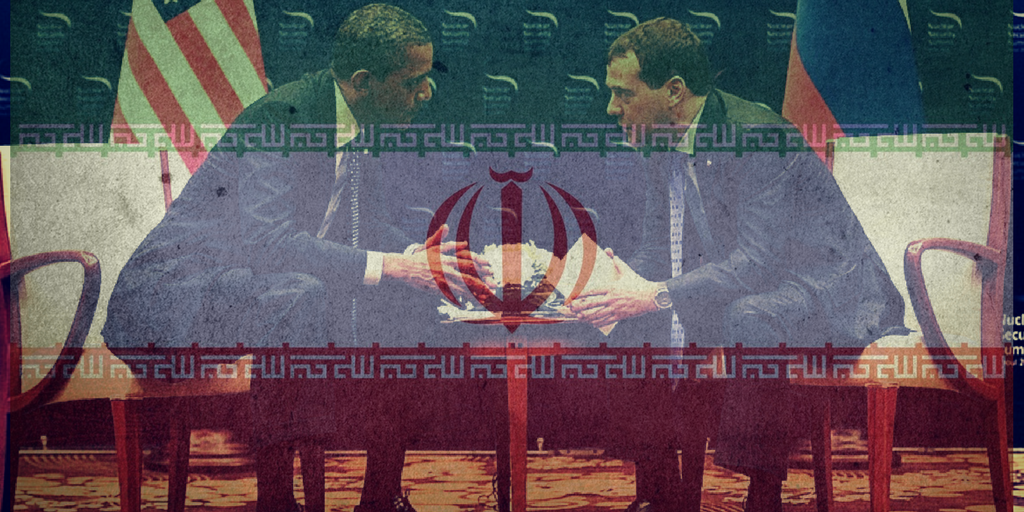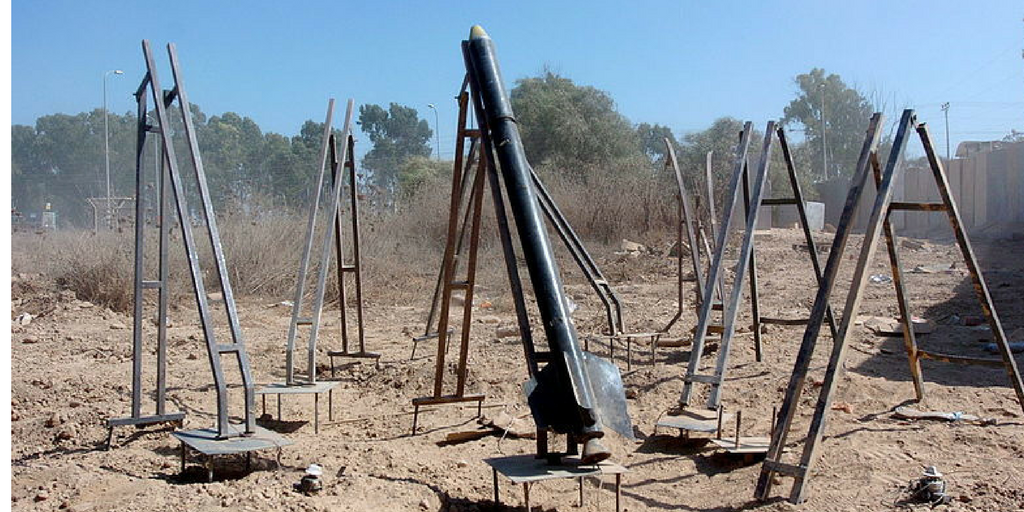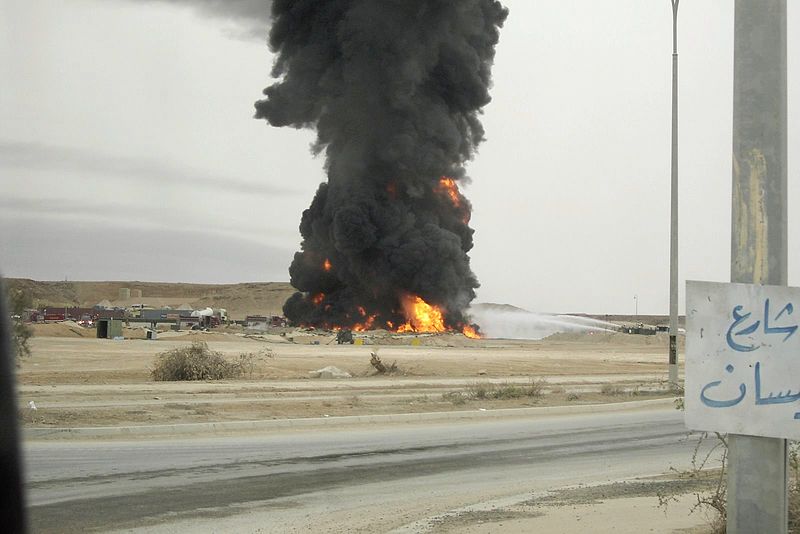The attempt to justify the 2015 deal with Iran, as being the only viable alternative to allowing it to develop nuclear weapons, is both infuriating and disingenuous.
The prime minister of Israel is deeply opposed to it, I think he’s made that very clear. I have repeatedly asked, what is the alternative that you present that you think makes it less likely for Iran to get a nuclear weapon? And I have yet to obtain a good answer on that. Barack Obama, on the 2015 Iran nuclear deal, Office of the White House Press Secretary, April 11, 2015.
President Obama has been crystal clear. Don’t rush. We’re not in a rush. We need to get the right deal…No deal is better than a bad deal. And we are certainly adhering to that concept. Obama’s Secretary of State, John Kerry, “No deal is better than a bad deal”, Politico, Nov. 10, 2013.
Why would the mullahs cheat on a deal as good for them as this one?…Simply put, this is one terrific agreement for Tehran. And Iran is likely to have no interest in violating it…It’s the cruelest of ironies that Iran is reaping huge rewards for giving up something it wasn’t supposed to be doing in the first place. Aaron David Miller, “Iran’s Win-Win…Win Win Win Nuke Deal”, Daily Beast, July 20, 2015.
The Iran nuclear deal, concluded in July 2015, was catapulted back into the headlines on Monday, when Prime Minister Benjamin Netanyahu revealed that the Israel intelligence services had managed to spirit away a huge trove of documents from the heart of Tehran to Israel.
A dodgy deal, born of deception
The documents prove that, in contradiction to public declarations of it leaders, Iran had, indeed, planned to produce nuclear weapons, to develop the ability to deliver them by means of ballistic missiles, and had secretly stored the information in an undisclosed location—presumably for use at some future date, chosen by the Iranians. After all, if this was not the Iranian intent, why bother to store them at all—never mind surreptitiously conceal such storage?
Reactions to Netanyahu’s exposé ranged from the fervently enthusiastic to the dismissively blasé, with opinions being roughly divided between those who opposed the 2015 deal; and those who endorsed it—the former seeing it as a telling endorsement of their prior position, the latter, refusing to be moved by the revelations.
Those who would attempt to diminish the significance of the remarkable intelligence coup, by claiming that what Netanyahu revealed produced nothing substantially new, or anything demonstrating that Iran had breached the 2015 deal, largely miss the point.
Indeed, it is difficult to know what is worse—whether these claims by the deal’s adherents (or more accurately, apologists) are true, or whether they are not.
For if they are true, then the deal was signed with the co-signatories fully aware that the the deal was “born in sin”, and based on blatant deception and deceit on the part of the Iranians—to which they were willingly complicit. Alternatively, if they are not true, then the co-signatories were blatantly hoodwinked by Tehran, and are now disingenuously trying to deny their incompetence and gullibility.
“…the cruelest of ironies…”
For the real point brought home by Netanyahu’s revelation is not that the deal has been violated, but that it should never have been made in the first place. As former senior State Department official, and today Vice President at the Woodrow Wilson International Center, Aaron David Miller, points out, the absurdity of the deal is that it awards “Iran … huge rewards for giving up something it wasn’t supposed to be doing in the first place” (see introductory excerpt).
Indeed, if anything, Miller understates the absurdity.
For, in fact, the deal does not really require Iran to “give up something it wasn’t supposed to be doing in the first place”, but merely to suspend it. Worse, under the terms of the agreement, Iran was essentially allowed—even empowered—“to continue doing things it wasn’t supposed to be doing in the first place”—like developing ballistic missiles to carry nuclear war-heads, fomenting and financing terror across the globe, and effectively annexing other countries–either directly (as in Syria) or by tightly-controlled proxies (as in Lebanon).
In light of all this, the two major claims advanced by the deprecators of Netanyahu’s exposé —i.e. (a) that they heralded nothing new; and (b) indicated no breach by Iran—appear to be specious indeed.
Premature and prejudicial
After all, since Netanyahu divulged only a small fraction of the seized material, it is somewhat premature and prejudicial to determine whether there are any new, previously unknown elements of any consequence in it.
Moreover, as it stands at the moment, it is impossible to know whether Iran is adhering to the deal, or violating it. For it is precisely in those locations, where such violations are likely to take place—its military sites—that Iran has refused to allow inspections!
Thus, according to an August 2017 report by Reuters, Iran brusquely dismissed a U.S. demand for nuclear inspectors to visit its military bases as “merely a dream”.
When U.S. ambassador to the United Nations, Nikki Haley, pressed the IAEA to seek access to Iranian military bases to ensure that they were not concealing activities banned by the 2015 nuclear deal, an Iranian government spokesman, Mohammad Baqer Nobakht, rejected this outright: “Iran’s military sites are off limits…All information about these sites are classified. Iran will never allow such visits.”
Accordingly, given the telling evidence provided by Israel that Iran lied consistently about its weapons program in the past, and given the faulty inspection regime in place today, the cardinal question should not be whether there is any compelling proof that Iran is in breach of the nuclear deal, but whether there is any such proof that it is in compliance with it.
“Obama chose to ignore the peril…”
This grim assessment is underscored by an opinion piece just published by nuclear expert, Ephraim Asculai, formerly of the International Atomic Energy Agency (IAEA) and today a senior Research Fellow at the Institute for National Security Studies. He observes: “…the “deal” with Iran dealt only partially and temporarily with the issue of preventing Iran from accomplishing its original program”, noting that “[although]… much of the information disclosed by the prime minister was known –now it is authenticated.”
According to Asculai, “Former US President Barack Obama chose to ignore the potential… But the looming crisis did not disappear. When the term of the [deal] is up in a few years, Iran will legally resume its enrichment activities.”
He warns: “The deal was not a good one. It left Iran with the potential to resume its weapons development program at will, did not really deal with the issue of the development of the nuclear explosive mechanism, did not deal with the issue of missile development, and the verification mechanism is an inefficient one, dealing only with limited issues and not using all available inspections powers.”
Asculai acknowledges the value of Netanyahu’s presentation: “The presentation did a very important thing: it presented evidence of the technical details of Iran’s past program…that includes designs, locations and probably stocks of materials…” explaining that: “This evidence is essential if the IAEA inspectors want to verify that these are no longer active, that the materials are all accounted for and the staff are all interrogated and prove that they are not engaged in the new project.”
Aiding and abetting Iran’s nuclear ambitions
Asculai goes on to address Netanyahu’s critics: “From the first international reaction we learn that the general opinion was that there was no proof that Iran violated the agreement” and asks, pertinently: “[B]but is that the real issue?”
For, as he correctly notes: “Had Iran wanted to prove it had abandoned any nuclear weapons-related program it should have consented to opening up its archives, sites and materials to international inspections. It did not do this because this is not its intention”.
Asculai berates detractors of Netanyahu’s presentation and their attempt to dismiss its importance, accusing them of aiding and abetting Iran in its quest for weaponized nuclear capability: “By stating that Iran did not do wrong, these deniers are becoming accessories to its nuclear ambitions”, asking in exasperation: “Is this what they really want?”
In concluding his article, Asculai calls on Netanyahu to map out alternatives: “The prime minister should have presented the possible solutions,” and urges: “It is not too late to do so”.
Indeed, the alleged lack of an “alternative” has constituted the major thrust of the criticism of the proponents of the deal, echoing Obama’s 2015 dismissal of Netanyahu’s rejection of it: “The Prime Minister of Israel is deeply opposed to it. I think he’s made that very clear. I have repeatedly asked, what is the alternative that you present that you think makes it less likely for Iran to get a nuclear weapon, and I have yet to obtain a good answer on that.”
Infuriating and disingenuous
The attempt to justify the deal with Iran as being the only viable alternative to allowing the Islamic Republic to develop nuclear weapons is both infuriating and disingenuous.
It is infuriating because the very acceptance of the 2015 deal flies in the face of repeated prior commitments by the Obama administration to eschew bad deals. Indeed, as John Hannah pointed out in a scathing appraisal of the process led by Obama that culminated in the deal: “…the mantra guiding his Iran policy all along has allegedly been ‘no deal is better than a bad deal’.”
Moreover, the claim of “no alternative’ is disingenuous because it was none other than Obama, who laid out the alternative to the current deal – which assures Iran’s weaponized nuclear capability, permits the production of missiles that can threaten European capitals, provides funds to propagate terrorism and to destabilize pro-US regimes.
After all, in Obama’s own terms, the alternative was “no deal”!
Indeed, it was not that opponents of the deal did not offer cogent alternatives.
It was that the proponents designated–and apparently still designate—anything that Iran did not agree to as “impractical” or “unfeasible”.
Clearly, if the underlying assumption is that the only “practical” option is a consensual one—i.e. one which Tehran willingly accepts; rather that a coercive one—i.e. one which Tehran is compelled to accept, say, by intensified sanctions, backed by a credible threat of military action – then the proponents of the deal might be right that there was no “available” alternative.
Making abrogation inevitable
But by this, they are cutting the ground from under their own feet—and the very logic underlying the deal they endorse.
Indeed, the very assumption that if the deal is abandoned, Iran will acquire nuclear weapons, virtually ensures that it will.
For, if the Iranian leadership believes that co-signatories were unwilling to confront a weak, impoverished, non-nuclear, pre-deal Iran with a convincing coercive threat, why would it possibly believe that they would be willing to do so with a greatly empowered and enriched, near-nuclear, post-deal Iran?
Accordingly, if the US and its allies were not willing to confront Tehran with a credible specter of punitive, coercive action, which will compel it to abandon its nuclear program, then clearly there is no inducement for it to adhere to the deal – making its future abrogation inevitable…at any time Iran deems expedient.
That is the true—and chilling—significance of the unfounded contention that there is “no other viable alternative”.







 These two citations convey, with chilling accuracy, the grave perils to which Israel would be exposed if a Palestinian state were ever established on the commanding hills overlooking the country’s coastal megalopolis, where about 80% of the country’s civilian population and commercial activity are located.
These two citations convey, with chilling accuracy, the grave perils to which Israel would be exposed if a Palestinian state were ever established on the commanding hills overlooking the country’s coastal megalopolis, where about 80% of the country’s civilian population and commercial activity are located.







 Above
Above


